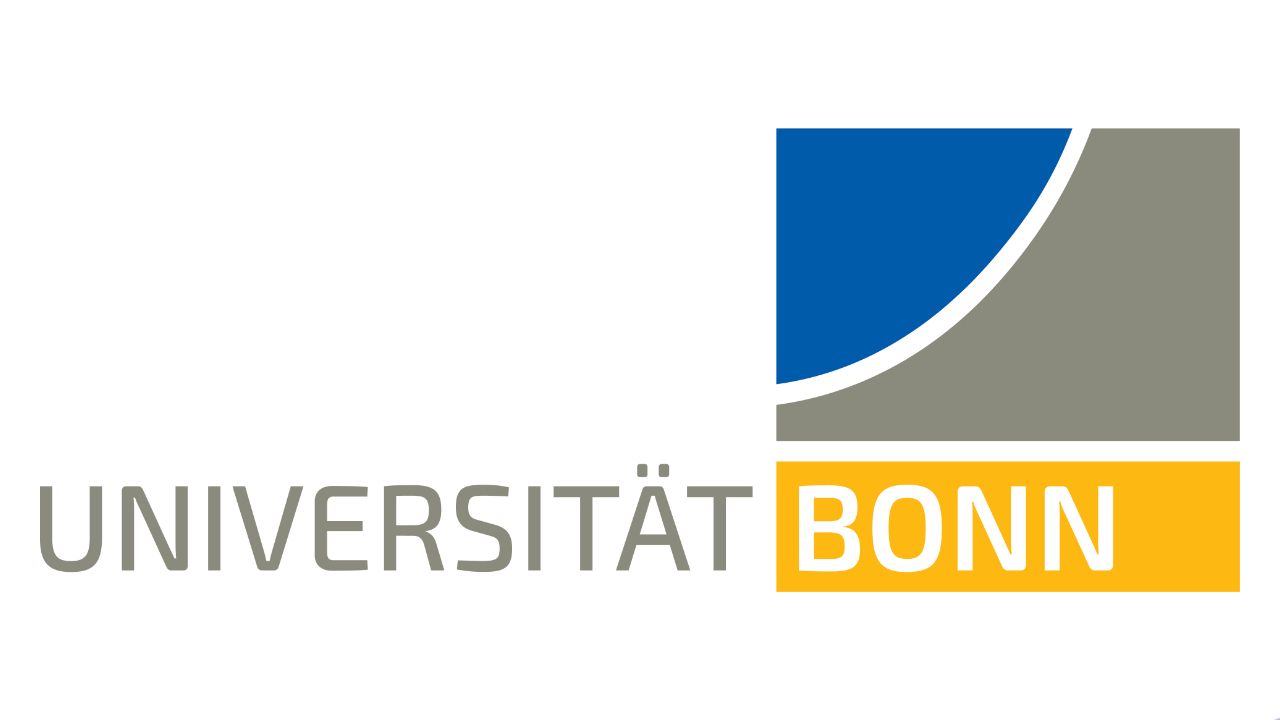Explore By
 Exams
Exams
 Countries
Countries
 Expenses
Expenses
 Universities
Universities
Germany - situated in Western Europe - is the world's most popular non-Anglophone study destination. Due to its high academic level and tuition-free public universities, Germany has become the most sought-after destination for higher education.
Academic Excellence
Germany is ranked #3 in the world for higher education. Germany is recognized as a global leader in various industrial and technological sectors. Students are guaranteed to receive the highest standard of STEM education combined with world-class research opportunities. The country has been an epicenter for the industrial revolution, some of the greatest inventions that changed the world - the Printing Press, Diesel Engine, and Television X-ray Generator took place in Germany.
Low/No Tuition Fees
Studying abroad for higher education can be an expensive affair but this is not the same case when one chooses Germany as his/her study abroad destination. In October 2014, a decision that came into power stated that all international students attending a public university in Germany would be free from paying tuition fees.
The diversity
German government offers a wide variety of scholarships for international students and actively tries to attract students. In fact, Germany is the third most popular destination for US students seeking a Master's abroad, meaning you'll be surrounded by similarly-minded peers. Germany is also a multilingual country - almost two-thirds of all Germans speak English or at least understand enough to get around. Germany also ranks among the top 25 LGBTQ+ friendly countries.
The admission process differs from college to college, but the following documents remain/general requirements remain staple for admission to higher education in Canada. The admission process differs from college to college, but the following documents remain staple for admission to higher education in Germany
To study in Germany, students will need a ‘Hochschulzugangsberechtigung’ ‘HZB’ - which is a school-leaving qualification. Before applying to university, students should check that their home-country school-leaving qualification is recognized by the German higher education system.
In Germany, almost all undergraduate programs are taught in German. So, if students plan to attend a UG program, they will have to submit a German language proficiency test score.
Proof of English proficiency (TOEFL/IELTS)
GMAT/GRE for postgraduate programs
Letters of recommendation
Statement of purpose
Academic transcripts
Copy of a valid passport
Germany has been ranked as the best place to study abroad in Europe and third in the world. Based on official recordings in 2018, Germany has 429 public higher education institutions of which 106 are universities, some of these universities are also the oldest in Europe and have been consistently ranked among the world’s best universities.
Three of these universities - Technical University of Munich, Ludwig-Maximilians University and Ruprecht Karl University of Heidelberg rank among the top 100 QS World University Rankings. Additionally, Munich and Berlin are ranked in the top 10 best cities in the world for higher education.

Technical University of Munich
Munich, Bavaria
Know More

Ludwig Maximilian University of Munich
Munich, Bavaria
Know More

University of Bonn
Bonn, North Rhine-Westphalia
Know More
Germany is a country that thrives on science and technology. Germany has invested heavily in technical/engineering universities and the nation’s engineering programs are immensely valued all over the world. Germany has emerged as the global leader in STEM programs which are combined with cutting-edge research facilities.
Germany treats education as a right and not a commodity that one has to purchase therefore in 2014, the Government approved a decision to abolish international fees in public universities. Germany believes that free access to education ensures economic growth and welfare for the greater population.
While there usually aren’t any tuition fees at public universities, students normally have to pay something called a “Semesterbeitrag” (semester fee) or “administrative fee”. A small amount: often around 300 or 400 euros for the whole semester. This then also covers a public transport ticket for your city and sometimes even the surrounding areas
Semester fee of top-ranking German universities.
University | Semesterbeitrag |
Ludwig Maximilian University | €244/year |
Technical University of Munich | €144/year |
University of Heidelberg | €364/year |
Humboldt University Berlin | €620/year |
Karlsruhe Institute of Technology | €1500/year |
Cost of living while studying in Germany
Expenses | Average Cost |
Rent and Utilities | 300 to 500 € |
Food and Drink | 200 to 250 € |
Health Insurance | 100 € |
Phone and Internet | 50 € |
Miscellaneous Expenses | 50 to 100 € |
Recommended Blogs

Updated on Nov 02 ,2023

Updated on Aug 14 ,2023

Updated on Apr 07 ,2023
Almost all publicly funded German universities provide tuition-free education for international students, except for niche or specialized educational programs.
International students only have to pay nominal semester, administrative, and related fees at public universities. Scholarships would be the icing on the cake, scholarships would cover some parts of the living costs and other miscellaneous expenses.
DAAD Scholarships programs
Heinrich Böll Foundation Scholarships in Germany
DeutschlandStipendium National Scholarship Programme
Konrad-Adenauer-Stiftung Scholarships in Germany for International Students
Erasmus Scholarship Programs in Germany
The Friedrich Ebert Stiftung Scholarship
Recommended Blogs

Updated on Jan 22 ,2024

Updated on Dec 25 ,2023

Updated on Nov 21 ,2023
The most affordable housing options for international students, in fact, on average 40% of all international students in Germany live in students halls of residence. These types of Accommodation are generally situated in the vicinity of the university. The average cost is around €250 per month, but the cost will also depend on the location, size, and other amenities.
Students interested in securing accommodation in student halls of residence should apply as soon as they receive their acceptance letter from the university. There will be a deadline for application, and the spots are limited. To register for a place in these halls, students must contact Studentenwerk (Student Services Organization).
A European citizen, who wants to study and live in Germany would enjoy and practice the same rights as a German citizen and EU/EFTA citizen regarding free entry, and opportunities to study and work in Germany.
However, non-European students who want to study in German would have to apply for German Study Visa.
Types of German Student Visa
Schengen Visa: The most popular form of visa granted for international students and is valid for a stay of 90 days to six months period. Students who are opting for short-term programs such as foundation courses, language courses etc. can submit the application for Schengen Visa.
National Visa: Bachelor’s, Master’s and PhD programs are classified under long-term study programs and hence, a national visa is required to pursue such programs. The validity of a National Visa is 3 months to one year but can be extended in cases of exceptional circumstances.
Student Visa:
General Student Visa: Granted to those students who fulfill these criteria -
Received admission letter from a German university for the pursuit of master’s, doctoral or postdoctoral level degree programs
Received a full scholarship for higher studies in a recognized German institution.
Prospective Student Visa: If students are waiting for admission from a recognized university in Germany or due to appear for an entrance examination, they are permitted to apply for a Prospective Student Visa. The validity period is of 3 months and can be extended to six months.
Part-time work opportunities
Students hailing from the European Union can practice and enjoy unrestricted access to the German labor markets and have the same right as a German citizen.
Restricted Working Hours: However, international students hailing from non-EU countries are allowed to work 120 full days or 240 half days per year. These students are not allowed to be self-employed or work as freelancers.
Special Permission: If students want to work for more than the allowed hours, they will need permission from the Agentur für Arbeit (Federal Employment Agency) and the Ausländerbehörde (Foreigner’s Office).
Taxation: International students who earn up to 450 EUR per month are exempted from paying tax. However, if they earn more than 450 EUR, they will need a tax number and a certain amount will be deducted from their wages every month.
Places where International students studying in Germany can look for a part-time jobs.
University Bulletin Board
University Career Centres
Online job portals
Friends and fellow students
Full-time Work Opportunity / Post-Study Work Opportunity
International students (Non-EU and EEA students) who wish to stay in Germany for employment opportunities need to apply for Post-Study Work Visa. Students need to extend their resident permit by 18 months in order to get employed related to their field of study.
Students need to provide the following documents to Registration Office for the extension of their residence permit.
Passport
Certificate of completion of their studies from a recognised German Higher Education University
Proof of financial support for the next 18 months
Proof of Health Insurance
After finding a job students can apply for an EU Blue Card - a card which will enable students to live and work in any EU state.
In case, an international student wants to stay in Germany and become a permanent resident, they need to apply for a ‘settlement permit’ two years after receiving the EU Blue Card.
Germany has become a dream destination for future prospects for students from STEM backgrounds. The country boasts of having one of the lowest unemployment rates in Europe - 6.3%.
The German economy is the fourth-largest in the world with a GDP of $4.0 trillion. Germany’s major industries are car manufacture, machinery, household equipment, and chemicals. Some of the biggest employers in German universities include Volkswagen, BMW, Bosch, Deloitte and more.
Recommended Blogs

Updated on Apr 25 ,2024

Updated on Nov 06 ,2023

Updated on Sep 12 ,2023
Germany offers tuition-free higher education to all international students irrespective of their nationality. In 2014, a law was passed that abolished the tuition fee from all public universities in Germany. Germany treats education as a right and not a commodity that one has to purchase. In Germany, there are around 300 public universities which offer more than 1000 programs. However, students have to pay something called a “Semesterbeitrag” (semester fee) or “administrative fee”, a small amount of around 300-400 EUR per semester.
The answer to this question depends on which program and university a student is opting for. It’s recommended to learn the basics of the German language to enable students to communicate more effectively with the local residents. Earlier, most undergraduate programs in Germany were offered solely in the German language, so international students have to prove their German language proficiency with tests like TestDAF and DSH. However, in recent years many universities in Germany are offering English-taught programs for every discipline.
The main reason of Germany being a global leader in engineering and technology is its Dual Education System. The dual education/apprenticeship system is a well-regarded system where students learn through a combination of ‘on-the-job’ training and in the classroom. Typically students will spend 70% of their time in the workplace and 30% at the university. Germany is home to 80 Nobel laureates including Wilhelm Conrad Röntgen, Robert Koch, Max Planck, Albert Einstein, Christiane Nüsslein-Volhard and Harald zur Hausen for their contribution in the field of science and technology.

Updated on Jan 30 ,2024

Updated on Jun 08 ,2023

Updated on May 15 ,2023
TOEFL
English language proficiency test
PTE
The computer-based English test
SAT
Standardized test administered by College Board
GRE
Admission test for graduates
GMAT
Test for Business and Management Programs
Confused which university to choose?
Use our recommendation engine to analyze your profile and recommend the most desirable programs that fit you.
Get Recommendation